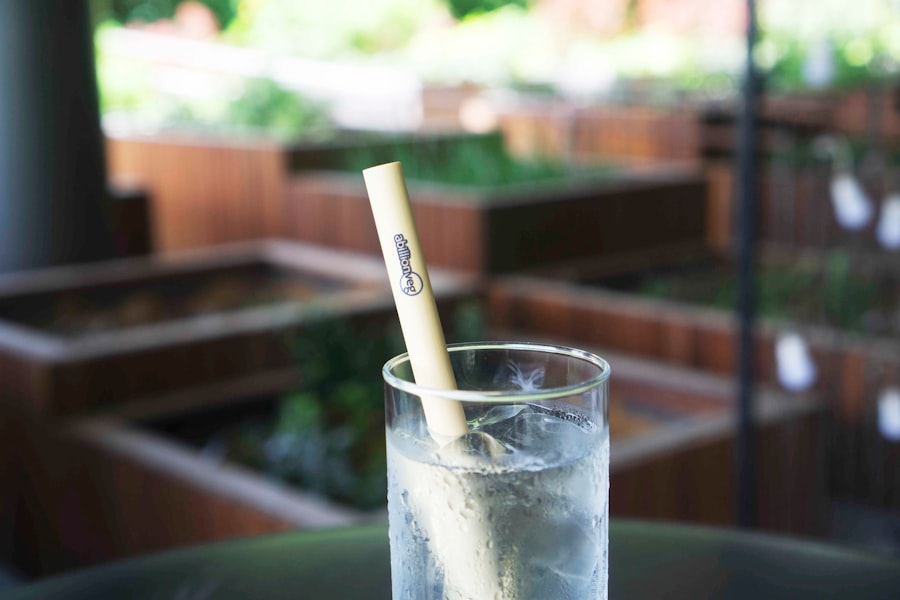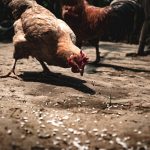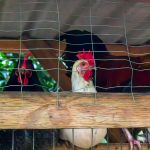Chickens are susceptible to heat stress, particularly during hot summer months. Recognizing signs of heat stress is crucial for chicken owners to maintain the health and safety of their flock. Common indicators include panting, wings held away from the body, reduced egg production, lethargy, and decreased appetite.
Vigilance is essential, as heat stress can rapidly escalate to more severe health issues if not addressed promptly. Behavioral changes are also important to monitor. Chickens spending more time lying down or seeking shade may be struggling with heat.
Changes in overall mood, such as increased irritability or agitation, can indicate heat-related discomfort. Understanding these signs allows chicken owners to take proactive measures to mitigate the effects of heat stress and ensure the well-being of their flock. By recognizing both physical and behavioral indicators of heat stress, chicken owners can implement appropriate strategies to keep their birds comfortable and healthy during hot weather.
This awareness is fundamental to maintaining a thriving flock and preventing heat-related health complications.
Table of Contents
- 1 Providing adequate shade and ventilation in the coop
- 2 Offering cool treats and frozen treats to keep chickens hydrated
- 3 Using misters or sprinklers to cool down the chicken coop area
- 4 Adjusting feeding and watering schedules to avoid the hottest parts of the day
- 5 Creating a dust bathing area for chickens to cool off
- 6 Monitoring and managing the overall health and well-being of chickens during hot weather
- 7 FAQs
Key Takeaways
- Panting, holding wings away from the body, and decreased egg production are signs of heat stress in chickens
- Ensure the coop has ample shade and proper ventilation to prevent heat buildup
- Offer cool treats like watermelon and frozen treats like ice blocks to keep chickens hydrated
- Use misters or sprinklers to lower the temperature in the coop area
- Adjust feeding and watering schedules to avoid the hottest parts of the day
- Create a dust bathing area for chickens to cool off and maintain hygiene
- Monitor and manage the overall health and well-being of chickens during hot weather to prevent heat-related illnesses
Providing adequate shade and ventilation in the coop
Shade and Ventilation: The Key to a Cool Coop
One of the most important steps in preventing heat stress in chickens is to ensure that their coop provides adequate shade and ventilation. This can be achieved by positioning the coop in a shaded area, or by providing additional shade using tarps or other materials. It’s also important to ensure that the coop has good airflow, as stagnant air can contribute to heat build-up.
Improving Airflow in the Coop
This can be achieved by installing windows or vents in the coop, or by using fans to circulate air. By providing adequate shade and ventilation, chicken owners can help to keep their flock cool and comfortable during hot weather.
Coop Construction Materials Matter
In addition to shade and ventilation, it’s also important to consider the materials used in the construction of the coop. Metal coops, for example, can become extremely hot in direct sunlight, so it’s important to provide additional insulation or shading to prevent heat build-up. Similarly, dark-colored materials can absorb more heat than lighter colors, so it’s important to consider this when designing or modifying a coop.
Offering cool treats and frozen treats to keep chickens hydrated

Another effective way to help chickens beat the heat is by offering them cool treats and frozen treats to keep them hydrated. This can include treats such as frozen berries, watermelon, or even frozen peas. Not only do these treats provide hydration, but they also offer a refreshing and enjoyable way for chickens to cool down during hot weather.
In addition to frozen treats, it’s also important to ensure that chickens have access to fresh, cool water at all times. This can be achieved by providing multiple water sources throughout the coop and ensuring that they are regularly replenished with fresh water. In addition to treats and water, it’s also important to consider the overall diet of the chickens during hot weather.
Feeding them foods with high water content, such as cucumbers or lettuce, can help to keep them hydrated and cool. It’s also important to avoid feeding them foods that are high in protein, as these can increase their metabolic heat production. By offering cool treats, ensuring access to fresh water, and adjusting their diet as needed, chicken owners can help to keep their flock hydrated and healthy during hot weather.
Using misters or sprinklers to cool down the chicken coop area
Misters or sprinklers can be an effective way to cool down the chicken coop area during hot weather. By installing misters or sprinklers in the coop or in the surrounding area, chicken owners can create a cooling effect that helps to lower the ambient temperature and keep their flock comfortable. This can be especially effective during the hottest parts of the day, when temperatures are at their peak.
In addition to providing a cooling effect, misters or sprinklers can also help to increase humidity in the coop, which can be beneficial for chickens during hot weather. It’s important to note that when using misters or sprinklers, it’s crucial to ensure that the chickens have a dry area where they can retreat if they prefer not to be sprayed with water. This can be achieved by providing sheltered areas within the coop or by positioning misters or sprinklers in a way that allows chickens to avoid them if they choose.
By using misters or sprinklers responsibly and thoughtfully, chicken owners can help to create a comfortable and cool environment for their flock during hot weather.
Adjusting feeding and watering schedules to avoid the hottest parts of the day
During hot weather, it’s important for chicken owners to adjust their feeding and watering schedules to avoid the hottest parts of the day. This can help to prevent heat stress and ensure that their flock remains healthy and comfortable. For example, feeding chickens early in the morning or later in the evening can help to avoid the peak temperatures of the day.
Similarly, ensuring that chickens have access to fresh water throughout the day is crucial for keeping them hydrated and cool during hot weather. In addition to adjusting feeding and watering schedules, it’s also important to monitor the overall behavior and well-being of the flock during hot weather. If chickens are showing signs of heat stress, such as panting or lethargy, it may be necessary to provide additional water or adjust their feeding schedule further.
By being attentive and responsive to the needs of their flock, chicken owners can help to ensure that their birds remain healthy and comfortable during hot weather.
Creating a dust bathing area for chickens to cool off

Benefits of Dust Bathing
Dust bathing helps chickens to remove excess oil and dirt from their feathers, which can help them stay cooler during hot weather. It also provides a way for chickens to relax and engage in natural behaviors that are beneficial for their overall well-being.
Maintenance of the Dust Bathing Area
In addition to providing a dust bathing area, it’s important for chicken owners to ensure that it is kept clean and dry. This can be achieved by regularly replenishing the area with fresh dust or sand, and by ensuring that it is located in a shaded area where chickens can access it comfortably during hot weather.
Providing a Comfortable Environment
By providing a dust bathing area for their flock, chicken owners can help to ensure that their birds have a natural and effective way to stay cool and comfortable during hot weather.
Monitoring and managing the overall health and well-being of chickens during hot weather
Finally, it’s crucial for chicken owners to monitor and manage the overall health and well-being of their flock during hot weather. This includes being vigilant for signs of heat stress, as well as taking proactive measures to prevent it from occurring. It’s also important to ensure that chickens have access to fresh water at all times, as well as a balanced diet that helps them stay hydrated and healthy.
By being attentive and responsive to the needs of their flock, chicken owners can help to ensure that their birds remain healthy and comfortable during hot weather. In addition to monitoring physical signs of heat stress, it’s also important for chicken owners to pay attention to the behavior of their flock. If chickens are spending more time seeking out shade or appear more lethargic than usual, it could be a sign that they are struggling with the heat.
By being observant and responsive to these signs, chicken owners can take proactive measures such as providing additional shade or adjusting feeding schedules as needed. By monitoring and managing the overall health and well-being of their flock during hot weather, chicken owners can help to ensure that their birds remain healthy and happy throughout the summer months. In conclusion, understanding how to recognize and prevent heat stress in chickens is crucial for ensuring the well-being of a flock during hot weather.
By providing adequate shade and ventilation in the coop, offering cool treats and frozen treats for hydration, using misters or sprinklers responsibly, adjusting feeding and watering schedules, creating a dust bathing area for chickens, and monitoring and managing overall health and well-being during hot weather, chicken owners can help their flock stay healthy and comfortable even when temperatures soar. With careful attention and proactive measures, chicken owners can ensure that their birds thrive throughout the summer months.
If you’re looking for tips on how to keep your chickens cool during the summer, you might also be interested in learning about the importance of the floor of your chicken coop. Check out this article for helpful advice on maintaining a comfortable and healthy environment for your feathered friends.
FAQs
What are some signs that my chickens are overheated?
Some signs that your chickens are overheated include panting, holding their wings away from their bodies, reduced egg production, and lethargy.
How can I keep my chickens cool during the summer?
You can keep your chickens cool during the summer by providing plenty of shade, ensuring good ventilation in the coop, offering cool water to drink, and providing frozen treats like fruits and vegetables.
What are some ways to provide shade for my chickens?
You can provide shade for your chickens by using tarps or shade cloths to cover their coop and run, planting trees or shrubs for natural shade, and creating shady areas with umbrellas or awnings.
How can I improve ventilation in my chicken coop?
You can improve ventilation in your chicken coop by installing windows and vents to allow for cross ventilation, using fans to circulate air, and ensuring that the coop is not overcrowded.
What should I do if my chickens are overheated?
If your chickens are overheated, you should immediately move them to a cooler area with shade and provide them with cool water to drink. You can also use a mister or hose to lightly spray them with water to help lower their body temperature.
Meet Walter, the feathered-friend fanatic of Florida! Nestled in the sunshine state, Walter struts through life with his feathered companions, clucking his way to happiness. With a coop that’s fancier than a five-star hotel, he’s the Don Juan of the chicken world. When he’s not teaching his hens to do the cha-cha, you’ll find him in a heated debate with his prized rooster, Sir Clucks-a-Lot. Walter’s poultry passion is no yolk; he’s the sunny-side-up guy you never knew you needed in your flock of friends!







